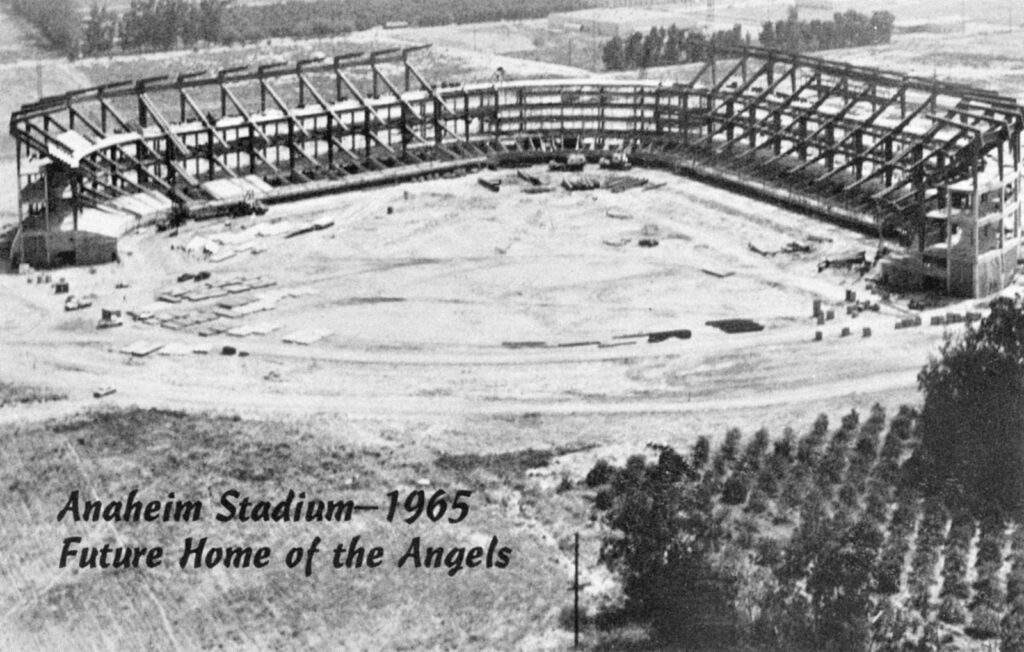Los Angeles is a city of transplants. And while the Southland has a much richer heritage and history than the rest of the country will give her credit for, it remains true that many people here are from somewhere else. When I moved to Southern California seven years ago from Philadelphia, this phenomenon became particularly clear to me by observing the range of sports fandom that existed amongst my neighbors. If I walked into any given sports bar on a fall Sunday morning, I’d inevitably find the patrons diversely garbed in at least 12 different NFL team jerseys. At first, I thought this was either a particular function of Los Angeles not having an NFL team for many years, or that since LA was an industry town for entertainment, it couldn’t help but have a variety of fans remaining true to their roots. But as Americans have become more mobile and less rooted than ever, I’ve noticed this trend in other cities as well. There is something admirable about being true to your childhood teams. But I would argue that it’s better for sport culture and for one’s own sense of belonging to root for the home team.
When I moved to Southern California in 2013, I left behind a golden childhood of baseball triumph in the 2007-2011 Phillies. I came of age as Jimmy Rollins audaciously declared that the 2007 Phillies were the “team to beat” in the NL East over the reigning National League champion Mets, and then delivered an MVP season to back it up. My siblings and I skipped school to see the 2008 World Series Champions parade down Broad Street. And I was in the ballpark as the winningest season in Phillies history came to an end in Divisional Round heartbreak as the collapse of our colossus Ryan Howard signaled not just the end of our season, but the end of an era. The Phillies were never the same after that, but those five wonderful seasons forged a boyhood bond in me that that will forever define my childhood and remains the foundational romance that keeps me coming back each Spring.
After graduating college in 2018, I made the move to the West official by marrying a California girl, grounding me solidly in the Golden State from whose bourne no traveler returns. With new responsibility and romance preoccupying my attention, I put away baseball for several summers. But this all changed when my son was born. I knew I now had the sacred American duty of instructing my child in the baseball arts. Swinging a bat came naturally to him, but the dilemma of fandom presented itself clearly as he began to play the hero, shouting the name of then-Angels player Shohei Ohtani as he rounded the makeshift bases in our backyard. I had been following the Phillies from afar since I couldn’t bring myself to root for the Dodgers, recent rivals of the Phils of the aughts. But I wasn’t sure I wanted to sentence my son to this long-distance fandom for life. I wanted him to have the same experiences I had. I wanted him to be able to one day celebrate with his 8th grade class in the collective joy at the local team’s postseason run. I wanted him to be able to watch his team at the ballpark with me on a Sunday afternoon, and not only a team on a TV representing a city 3,000 miles away.
I also didn’t want a house divided, with him rooting for one team and me another. I wanted our joy to be shared. I had come to believe that devoting significant amounts of time to watching sports as a grown man made little sense unless there was a child you could share the experience with, for whom the game was new and exciting and mattered. Baseball was a way for us to spend time together. And this meant it was time for me to put the loyalties of my youth behind me and root for the home team.
We moved to Orange County in 2023, and that solved the odious dilemma of having to root for the Dodgers. We became Anaheim Angels fans (not Los Angeles, thank you very much), and attended our first game at the “Big A” together on September 29th, Feast of the Archangels and Gene Autrey’s birthday. The Halos lost to Oakland 5-1. The misery continued and my son was quickly initiated into the suffering prepared for him as his hero Shohei Ohtani left for “that blue team up north.” Last year the Angels set a franchise record for their worst season ever. At least no one will be able to say we were fair-weather fans.
Rooting for your team is a proxy for your love for your town and your community. If these sporting associations were disembodied collectives not connected to place, they surely wouldn’t matter as much to us.
A team is from somewhere. Owners sell, players leave, but the place and the fans make up the fabric of the team. They provide the soul to the team. It makes sense then that when an owner decides to move a team to a new city it’s disruptive to a community—much like a divorce is to a family (look no further than the suffering baseball fans of Oakland last year, or the stories of Brooklyn Dodger fans who gave up baseball completely once Walter O’Malley ripped their hearts out). Rooting for your team is a proxy for your love for your town and your community. If these sporting associations were disembodied collectives not connected to place, they surely wouldn’t matter as much to us. I believe this is one of the reasons that individual competitions such as golf or tennis don’t have quite the hold on the American consciousness or entertainment market that the four major leagues do. Becoming invested in the teams that surround you, no matter how much they might contradict past loyalties, is best for your experience as a fan of sport. It’s also helpful in alleviating the malaise of “rootlessness.” Sure, there are much more important factors in this dilemma such as socioeconomic forces, the decline of religion and civic associations, urban planning etc; but as Pope St. John Paul II once remarked, “Out of all the unimportant things, football is the most important.” Sports really are the most important least important things. They may be only one rung above the weather in the hierarchy of small-talk topics, but they carry with them a passion and wide appeal that very few other subjects share. They have the capacity to bring together strangers in a shared joy that is only exceeded by good art, at least in things of this world. If we’re seriously interested in increasing this shared joy in our communities, catching a few innings of a ballgame together is generally more accessible for most than starting a book club. So if you find yourself in a new city this summer, struggling to meet people and find connections, stop by your neighborhood bar and root for the home team.
Image via Wikimedia






